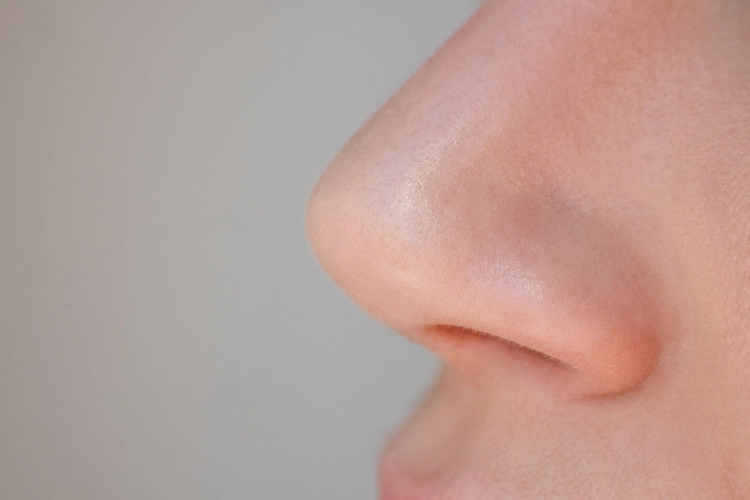Medically reviewed by Dr Alexander Lapa (Psychiatrist)
MBBS, PG Dip Clin Ed, OA Dip CBT, OA Dip Psychology, SCOPE Certified
Cannabis addiction may often be overlooked as not a serious condition, but it can have a profound impact on your life, affecting relationships and the state of your mental health.
At Addiction Advocates, we understand the challenges of overcoming cannabis dependency and provide specialised rehabilitation programmes across the UK, helping people to quit weed once and for all.
Why People Need Cannabis Rehab
Cannabis is widely viewed as a “soft drug” and often considered non-addictive. People may feel like they “just enjoy a spliff” but it can also cause real harm. Cannabis addiction doesn’t just affect physical health; it has a strong psychological pull.
Weed smoking is often considered harmless, as in the UK, it used to be the weaker cannabis resin, which was the most popular type of weed on the market. But now the market is dominated by Skunk, which is profoundly stronger.
The more you smoke, the more tolerant you become to the drug, and you may find yourself smoking more or looking for the strongest weeds to get the same effect. Some places such as Canada have made Cannabis legal, but only through authorised vendors in an attempt to regulate and control the strength of the Cannabis people consume. But in the UK, Cannabis is getting stronger, and some researchers have noted that the stronger weed gets, the more people we see needing treatment for mental health problems especially.
Cannabis Withdrawal
When you stop smoking weed, either by design or because your supply has run out, you may begin to feel withdrawal symptoms, such as irritability, insomnia, anxiety or paranoia; this is common when a dependency has set in.
Over time, this can interfere with work, studies, relationships, and overall quality of your life. Many people can not concentrate on other things and prioritise securing more marijuana over other things in life; often, relationships with family members can break down.
What Treatments Are Used in Cannabis Rehab
Our Cannabis rehab provides a structured environment where you can safely overcome your dependency on the drug.
At Addiction Advocates, our approach is compassionate and understanding. We know that overcoming cannabis addiction is possible with the right support system, which we offer through comprehensive treatment programmes tailored to your personal needs.
- Personalised Assessment and Detox Support
Every programme begins with a thorough, personalised assessment to understand your relationship with cannabis. This step is essential for identifying mental and physical dependencies and helps us to design an effective, tailored treatment plan.Detox support may also be necessary for some people, although cannabis withdrawal symptoms are generally more psychological than physical. The detox process at Addiction Advocates involves careful monitoring to manage any discomfort and prepare you for the therapeutic stages of rehab.
- Cognitive Behavioural Therapy (CBT)
CBT is a cornerstone of cannabis rehab, aiming to help you understand and alter the thought patterns that lead to cannabis use. Through CBT sessions, you will learn how to identify triggers, such as stress, social situations, or emotional lows that may prompt you to pick up a pipe or roll a joint. Our therapists will guide you to develop healthier coping strategies, which ultimately replace the reliance on cannabis as a form of escape. - Motivational Interviewing (MI)
Motivational Interviewing is another essential part of cannabis rehab, focusing on building your motivation to change. Weed can sap your motivation, and we will need to bring that back out in you. MI helps you to realise the benefits of a cannabis-free life, creating a strong, self-driven foundation for your long-term recovery.
- Group Therapy and Peer Support
One of the unique aspects of rehab is the opportunity to connect with others who share similar struggles. Group therapy offers a supportive space where you can openly discuss challenges, celebrate milestones, and receive encouragement from peers. - Holistic Therapies
Holistic therapies play a complementary role in cannabis rehab by nurturing overall well-being, which is essential for sustainable recovery. Addiction Advocates offers a range of holistic treatments, such as yoga, gym work, meditation, and mindfulness practices. These therapies help you to manage stress and anxiety naturally. - Relapse Prevention and Aftercare
Relapse Prevention is a key part of cannabis rehab. Techniques such as trigger management, building a strong support network, and continuing with therapy are integral to this stage.
There is no guarantee you will never smoke a joint again after rehab; that is up to you, and relapse is common with any drug. But we will make you much more resilient through our relapse prevention techniques and give you the best chance to quit smoking for good.
At Addiction Advocates, we also provide aftercare support, designed to ease the transition back into your daily life. Aftercare may include ongoing therapy, support groups, and regular check-ins to ensure that you are supported beyond our rehab environment.
Choosing Addiction Advocates for Cannabis Rehab
At Addiction Advocates, we are committed to offering a compassionate, non-judgmental environment where you can quit smoking cannabis and rediscover the real you. Our centres across the UK provide specialised care, with each programme tailored to suit the unique needs of our clients. Our dedicated team of therapists, counsellors, and support staff work hand-in-hand to ensure a holistic, effective recovery journey for every person we treat.
If you or a loved one is struggling with cannabis addiction, reaching out for support is a powerful first step. With Addiction Advocates by your side, a healthier, cannabis-free life is within reach. Contact us today to learn more about our personalised cannabis rehab programmes and begin the journey towards lasting recovery.
Frequently Asked Questions
References
- [1] dominated by Skunk - https://www.kcl.ac.uk/archive/news/ioppn/records/2018/february/uk-cannabis-market-dominated-by-high-potency-'skunk'#:~:text=The%20average%20concentration%20of%20THC,14%25%20between%202005%20and%202016.
- [2] such as Canada - https://www.canada.ca/en/health-canada/services/drugs-medication/cannabis/personal-use/reduce-risk-choose-legal.html
- [3] the more people we see needing treatment for mental health problems - https://www.bath.ac.uk/announcements/cannabis-strength-soars-over-past-half-century-new-study/

What do our previous clients think?
Latest News

Everything You Need to Know About the Brain-PACER Study
Addiction is a very complex condition that is difficult to treat. It has psychological and habitual elements, but also involves

How to Overcome FOMO in Recovery
Deciding to start your journey of recovery is something you should be incredibly proud of. It’s a life-changing decision, and

What Does Cocaine Do to Your Nose?
Cocaine is a powerful stimulant drug that is recreationally used for its euphoric effects. However, while it might offer immediate

Are Nightcaps Healthy?
You’ve probably heard of the term ‘nightcap’. In drinking terms, it’s up there with ‘one for the road’ and ‘hair
How We Help
Finding the right treatment for your addiction can be difficult this is why we have created a service which takes the stress away which can be a massive relief when dealing with an addiction.Self Referrals
Suffering with an addiction and being alone can be a horrific scenario for many. Whether you have a drug or alcohol addiction, we're here to help.Family Referrals
Do you have concerns that a loved one may be affected by substance misuse? Have you spotted any signs and symptoms of a drug and alcohol…Friend Referrals
Are you worried that a friend’s alcohol or drug consumption has become out of control? For many individuals, substance abuse starts unintentionally…What We Offer
Free Assessment
This is done to assess what sort of help is needed so we can recommend an addiction treatment service that can provide the best help possible.
All calls are strictly confidential and are carried out by a trained healthcare professional.
No obligation recommendations are made after a full assessment of yourself or loved ones situation is fully made.
Recommendations include specialist addiction treatment programmes in CQC regulated facilities based throughout the UK.
If you are unable to afford private treatment then public healthcare and charities would also be recommended to you.
How We Support You
We have a large number of helpful services available to help give you the best possible support when it comes to dealing with addiction.
Just some of the services we can offer includes:
- Free confidential telephone assessment
- Recommending CQC regulated residential addiction treatment providers
- Arranging for an intervention, if needed
- Insights into how different therapies and evidence based treatments work
- How detoxification works and what is the most safest option
- What type of rehab and detox programmes would be best suited for yourself or loved one
- Recommendations of the best providers in your area
Why Choose Us?
We can help take the stress out of finding an addiction treatment provider by recommending only the best options available that fully suits your criteria.
The help and advice we can provide includes making sure that your journey towards recovery is one that can definitely be achieved.
Taking the step towards recovery can be incredibly tough but we are here to put your concerns at ease by giving you insights into the safety of undertaking residential addiction treatment and how it can put you on the path towards long lasting recovery from addiction.
Our team of advisors have extensive experience and knowledge about the subject of addiction and the treatment provided so if you have any questions then they will be more than happy to help.
Get started today by calling our friendly team today on 0800 012 6088.

